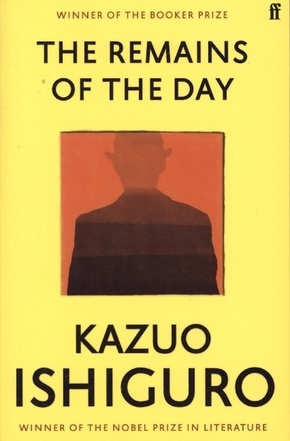
The Remains of the Day - Winner of the Booker Prize 1989
| Verlag | Faber & Faber |
| Auflage | 2005 |
| Seiten | 272 |
| Format | 19,8 cm |
| Gewicht | 222 g |
| Artikeltyp | Englisches Buch |
| ISBN-10 | 0571258247 |
| EAN | 9780571258246 |
| Bestell-Nr | 57125824EA |
Eine wunderschön-melancholische Liebesgeschichte.
Stevens dient als Butler auf Darlington Hall. Er sorgt für einen tadellosen Haushalt und ist die Verschwiegenheit in Person: Niemals würde er auch nur ein Wort über die merkwürdigen Vorgänge im Herrenhaus verlieren. Er stellt sein Leben voll und ganz in den Dienst seines Herrn. Auch die vorsichtigen Annäherungsversuche von Miss Kenton, der Haushälterin, weist er brüsk zurück. Die Jahre vergehen, Stevens lebt ergeben in seiner Welt, bis ihn eines Tages die Vergangenheit einholt. »Was vom Tage übrigblieb« ist ein gesellschaftskritischer Roman, erzählt von jemandem, der sich eine solche Kritik nie erlauben würde, und eine wunderschöne, traurige Liebesgeschichte, erzählt von einem, der nie auch nur ahnte, dass er geliebt hat.
The Remains of the Day is Nobel Laureate Kazuo Ishiguro's Booker Prize-winning novel.
§_Kazuo Ishiguro's new novel Klara and the Sun is now available_
WINNER OF THE BOOKER PRIZE
A contemporary classic, The Remains of the Day is Kazuo Ishiguro's beautiful and haunting evocation of life between the wars in a Great English House.
In the summer of 1956, Stevens, the ageing butler of Darlington Hall, embarks on a leisurely holiday that will take him deep into the countryside and into his past.
'A triumph . . . This wholly convincing portrait of a human life unweaving before your eyes is inventive and absorbing, by turns funny, absurd and ultimately very moving.' Sunday Times
'A dream of a book: a beguiling comedy of manners that evolves almost magically into a profound and heart-rending study of personality, class and culture.' New York TImes Book Review
Rezension:
'A triumph. This wholly convincing portrait of a human life unweaving before your eyes is inventive and absorbing, by turns funny, absurd and ultimately very moving.' Sunday Times
